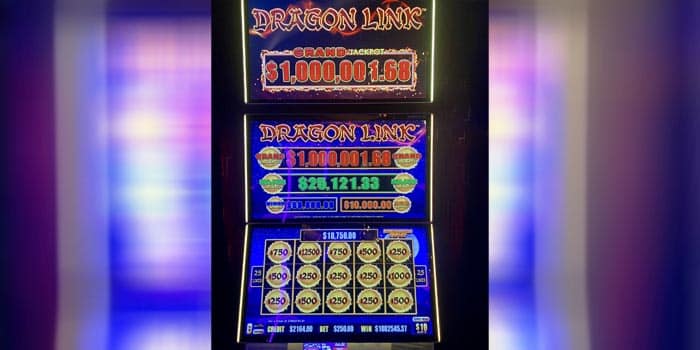- Casino
- By State
- Alabama
- Alaska
- Arizona
- Arkansas
- California
- Colorado
- Connecticut
- Delaware
- Georgia
- Florida
- Hawaii
- Idaho
- Illinois
- Indiana
- Iowa
- Kansas
- Kentucky
- Louisiana
- Maine
- Massachusetts
- Maryland
- Michigan
- Minnesota
- Mississippi
- Missouri
- Montana
- Nebraska
- Nevada
- New Hampshire
- New Jersey
- New Mexico
- New York
- North Carolina
- North Dakota
- Ohio
- Oklahoma
- Oregon
- Pennsylvania
- Rhode Island
- South Carolina
- South Dakota
- Tennessee
- Texas
- Utah
- Vermont
- Virginia
- Washington
- West Virginia
- Wisconsin
- Wyoming
- By State
- Slots
- Poker
- Sports
- Esports
New York Faces Federal Investigation over Seneca Gaming Compact

New York State violated federal laws. That’s what the Seneca Nation of Indians believes as it continues to fight a judge’s order to pay millions of dollars to the state. The issue revolves around payments the tribe has been ordered to make in accordance with its existing gaming compact with the state; however, those payments, according to the tribe, are not valid. The Department of the Interior (DoI) might now be stepping in and is reportedly seeking an investigation to finally put the discussion to rest.
The Contentious Gaming Compact
The problem between the Seneca tribe and the state started in 2002. That’s when a gaming compact was signed to allow the tribe to operate casinos. The agreement would be in place for 14 years and carry an automatic seven-year extension, provided there were no issues that could have forced the license to be revoked. In exchange for that license, the tribe would give New York 25% of its revenue each year. This is where the real crux of the confrontation begins, ultimately leading to the tribe owing the state as much as $470 million.
The tribe decided that the revenue-sharing portion of the compact was only valid through the initial phase of the agreement – not the extension. In 2017, it stopped making payments and was taken to court by New York. In 2019, a judge sided with the state, ordering the tribe to hand over $255 million. The Seneca Nation balked and appealed the verdict, with the Second Circuit Court of Appeals backing the previous verdict this past February. However, the case is still meandering through the court system.
The DoI isn’t convinced that the courts were right, though, and could be stepping in. The federal agency has reportedly called for an investigation into the issue, asserting that the judgment, and possibly New York State’s actions, violate federal laws. Following a request to have the ruling stayed, the Seneca reached out to the DoI and Assistant Interior Secretary for Indian Affairs Bryan Newland responded in a letter on September 15, stating, “The Department shares its serious concern about the [appeal’s court’s] extension of the revenue sharing provision … and whether this agreement may violate the (Seneca) Nation’s ordinance requirement that it maintain sole proprietary interest in its gaming operations and be the primary beneficiary of its gaming enterprise.”
New York in the Hot Seat
On the surface, it would make sense that the compact extension would automatically include the revenue-sharing language unless it were specifically omitted. However, the DoI’s involvement stems from the possible willful omission of a statement that the department had previously provided in the case. When the District Court for New York’s Western District was asked by the Seneca Nation to set aside the ruling, it did so with clarification from the DoI that the department had reportedly never authorized the payments during the extension. Without that authorization, the courts cannot rule in the case.
In addition, there is a discrepancy regarding how much New York continues to collect from the Seneca tribe. Thomas Cunningham, the chief compliance officer for the National Indian Gaming Commission, has pointed out that the gaming compact allows New York to recuperate the costs associated with regulating the tribal casinos, but it doesn’t allow the state to use the tribe as a piggy bank. That means, in his estimation, the 25% share is much greater than what is needed to cover the regulatory process. Cunningham asserted, “Here, the state’s actions and the agreed upon 14-year period within which the tribe was to compensate it for them appear to be long since complete, yet the percentage of revenues the nation is required to pay the state remain unchanged.”
This battle is likely to be fought at the highest levels. New York’s new governor, Kathy Hochul, has already gotten involved, asserting that the state is in the right and that the tribe needs to honor its obligations. However, with the DoI stepping in, a swift resolution is not going to be possible.
Erik brings his unique writing talents and storytelling flare to cover a wide range of gambling topics. He has written for a number of industry-related publications over the years, providing insight into the constantly evolving world of gaming. A huge sports fan, he especially enjoys football and anything related to sports gambling. Erik is particularly interested in seeing how sports gambling and online gaming are transforming the larger gaming ecosystem.
Previous Article

Legal
September 27, 2021
Long Island Casino Avoids Citizen-Led Effort to Be Shut Down

Must Read
Legal
July 10, 2025
Italian Court Clears Betsolution Ltd of Mafia Links
More Articles






Industry
July 16, 2025
Iowa Regulator Slams FanDuel with $125K in Fines

Industry
July 16, 2025
Ukraine Wants Real-Time Online Gambling Oversight

Casino
July 16, 2025
MGM China Confirms Jacky Heung Settled Gambling Debt

Casino
July 16, 2025
Strip Casinos End Cross-Property Poker Chip Cash-Ins

Casino
July 16, 2025
WWE Is Coming to Fanatics Online Casinos in the US










